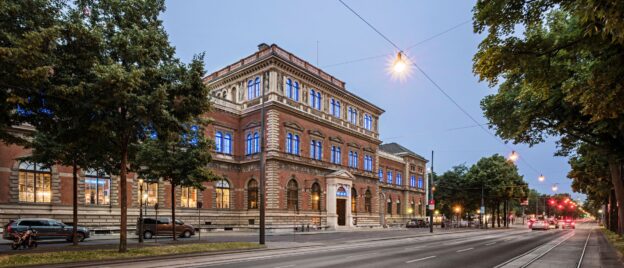
The Time Machine Organisation, in collaboration with the Austrian Federal Ministry of Education, Science and Research, the Federal Ministry for Arts, Culture, Civil Service and Sport, EIT Culture & Creativity, and ICOM Austria, hosted the conference “Innovation through Heritage: Resilience in Times of Climate Change” from March 3–5. Held as part of the Horizon Europe-funded ARCHE project (Alliance for Research on Cultural Heritage in Europe), the event took place at the MAK Museum of Applied Arts and the Former Austrian Länderbank.
Bringing together around 80 policy- and decision-makers, researchers, activists, and practitioners from Austria and neighbouring countries, the conference served as a platform to discuss national policies and priorities in cultural heritage research and innovation, especially addressing the impact of climate change on cultural heritage and shared examples of sustainable solutions and good practices.
Discussions and Insights
The conference opened with welcome remarks from representatives of the European Commission, JPI Cultural Heritage, and Austria’s two federal ministries. This was followed by a presentation on the ARCHE project and an introduction to the upcoming European Partnership for Resilient Cultural Heritage (RCH). A key session of the first day focused on national funding opportunities in Austria, featuring input from the Austrian Research Promotion Agency and government representatives.
In the afternoon, discussions centered on national policies and priorities in cultural heritage R&I across Slovenia, Austria, Czech Republic, Ukraine, and Moldova. Speakers represented institutions such as the Slovenian National and University Library, ICOM South East Europe, the Austrian Federal Monument Office, and Lviv Polytechnic National University. The audience actively engaged throughout the sessions, asking insightful questions and exchanging ideas that further enriched the discussions. The day ended with an evening networking session, featuring contributions from FSP, TMO, ICOMOS CIPA, and a keynote from Iconem.
Innovation and Resilience
The second day of the conference was marked by a live dialogue session, Cultural Heritage Unplugged, which explored the relationship between climate change and the future of cultural heritage. Speakers from the University of Oxford and the University of Amsterdam provided thought-provoking insights on innovation and adaptation.
Following this, the Morning Session on Innovative Strategies for Climate-Resilient Cultural Heritage featured presentations of inspiring projects and initiatives. Experts from institutions like Fondazione CHANGES, the University of Florence, and the University of Vienna, ARCA project, STECCI project, as well as ICOM Austria and the Swiss and Dutch branches of Time Machine Organisation. shared practical solutions for adaptive preservation and risk mitigation.
The Afternoon Session delved into synergies between European initiatives, with discussions on how projects such as ECHOES/EOSC, Europeana Data Space, and E-RIHS align with the Partnership for Resilient Cultural Heritage. A keynote from the Europeana Foundation set the stage for further collaboration.
Participants also engaged in an interactive speed networking session, where they rotated through discussions to explore potential partnerships and joint projects. The day concluded with an exclusive guided tour of the MAK Museum’s collections, including a special exhibit on Peche Pop.
Culture Driving Sustainability
The final day, hosted by EIT Culture & Creativity, focused on visionary discussions about the future of cultural heritage. Sessions highlighted cross-sectoral innovation and the role of creative industries in enhancing cultural heritage resilience. Experts from Museumbooster, the Polytechnic of Porto, and Jena University shared insights on integrating cultural heritage with emerging technologies and global trends.
The conference concluded with a closing roundtable, featuring representatives from JPI CH, TMO, EIT KIC, and E-RIHS, reaffirming the collective commitment to safeguarding cultural heritage in a changing world. A ceremonial handshake among the initiatives symbolized the pledge to collaborate towards a sustainable, inclusive, and innovative future for cultural heritage.
Recognitions and Impact
The conference was awarded the Eco Label by the City of Vienna, recognizing its commitment to sustainability. Throughout the event, attendees expressed strong interest in the topics discussed, actively participating in discussions and contributing to meaningful exchanges. The event was expertly moderated by Sophie Zechmeister, who ensured smooth and engaging discussions across all sessions.
Looking Ahead
The conference highlighted the role of cultural heritage in addressing climate challenges and fostering sustainable solutions. “Innovation through Heritage: Resilience in Times of Climate Change” provided valuable insights and opportunities for collaboration, helping to shape the future of cultural heritage research and policy.
Cover photo: ©Florian Spielauer
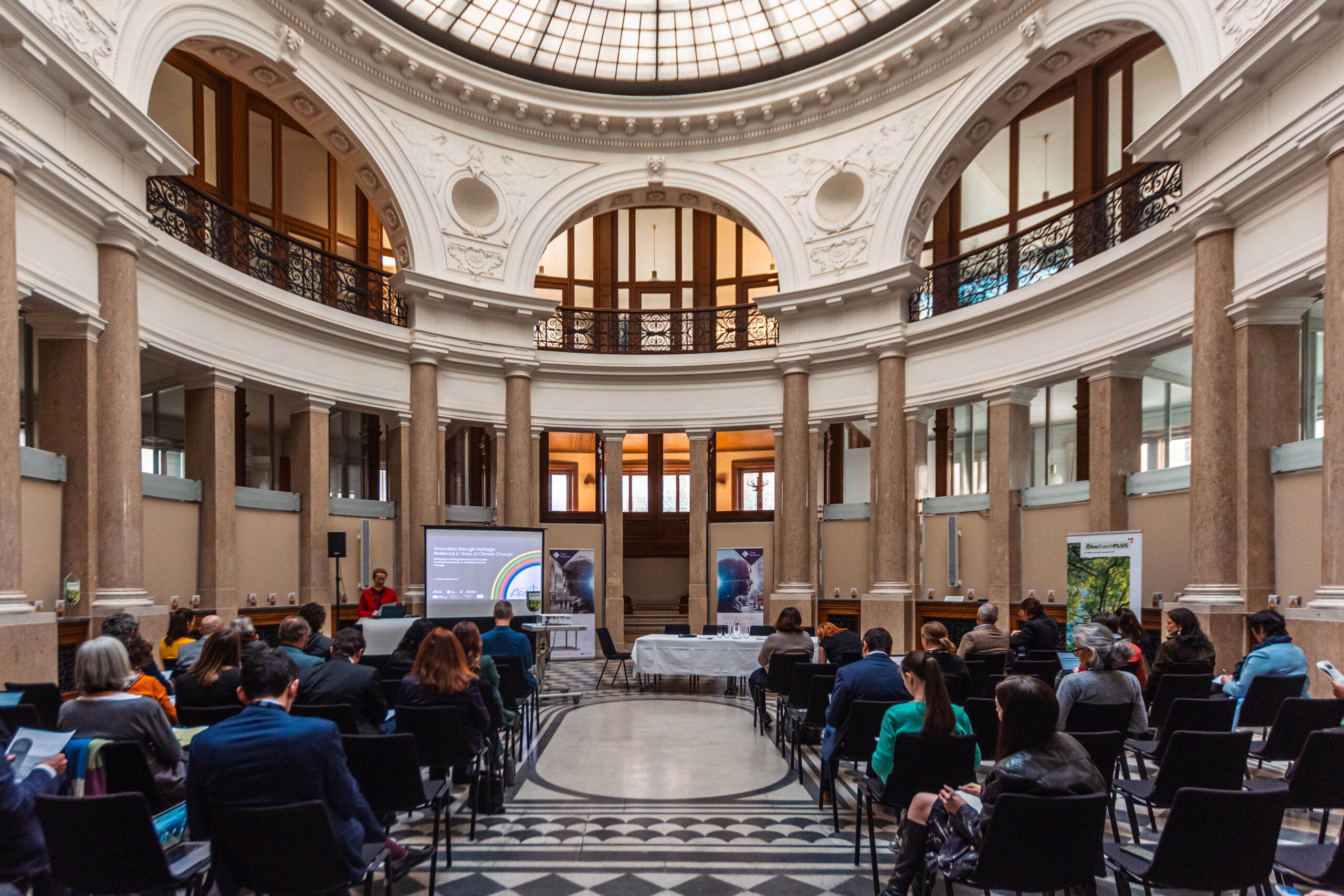
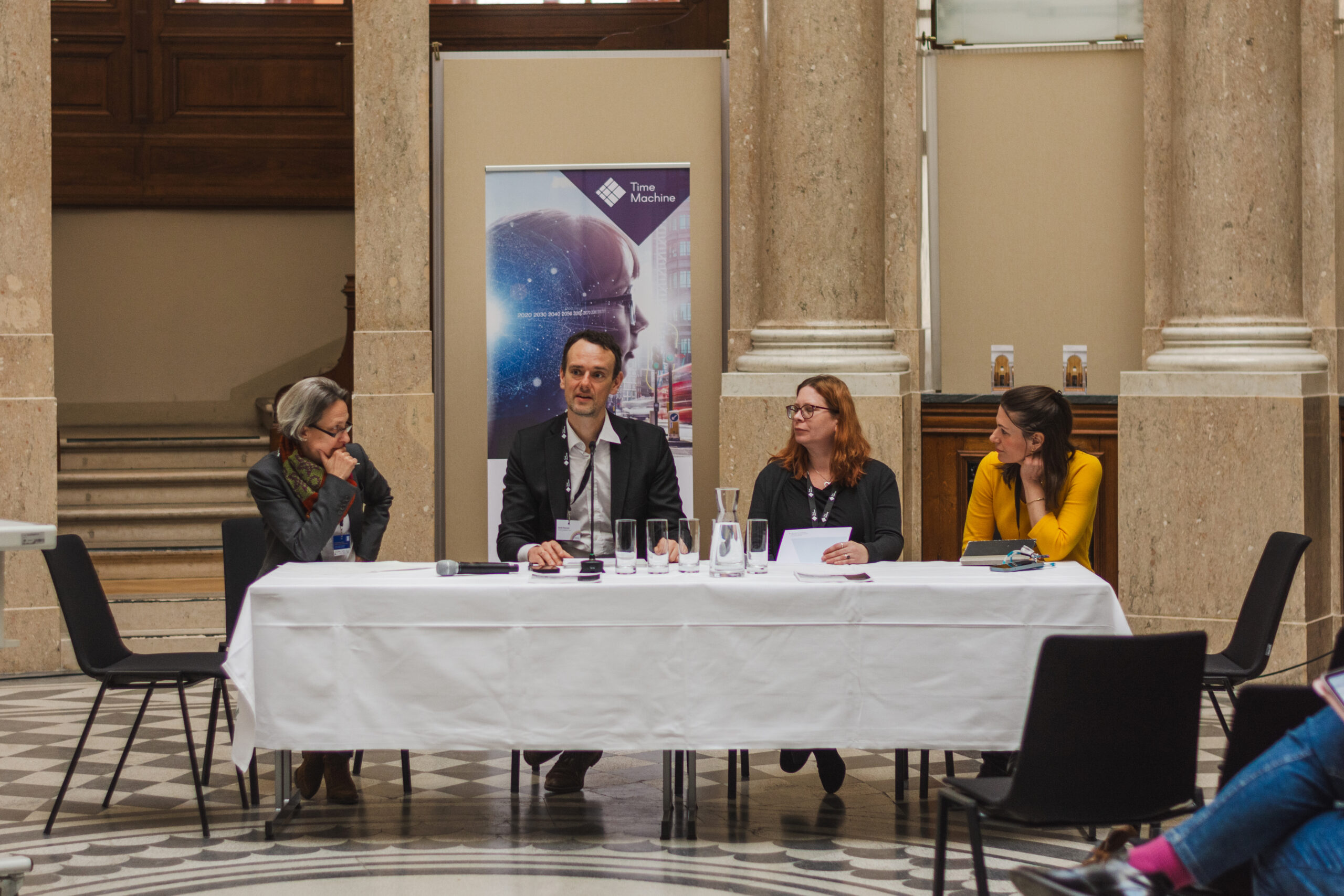
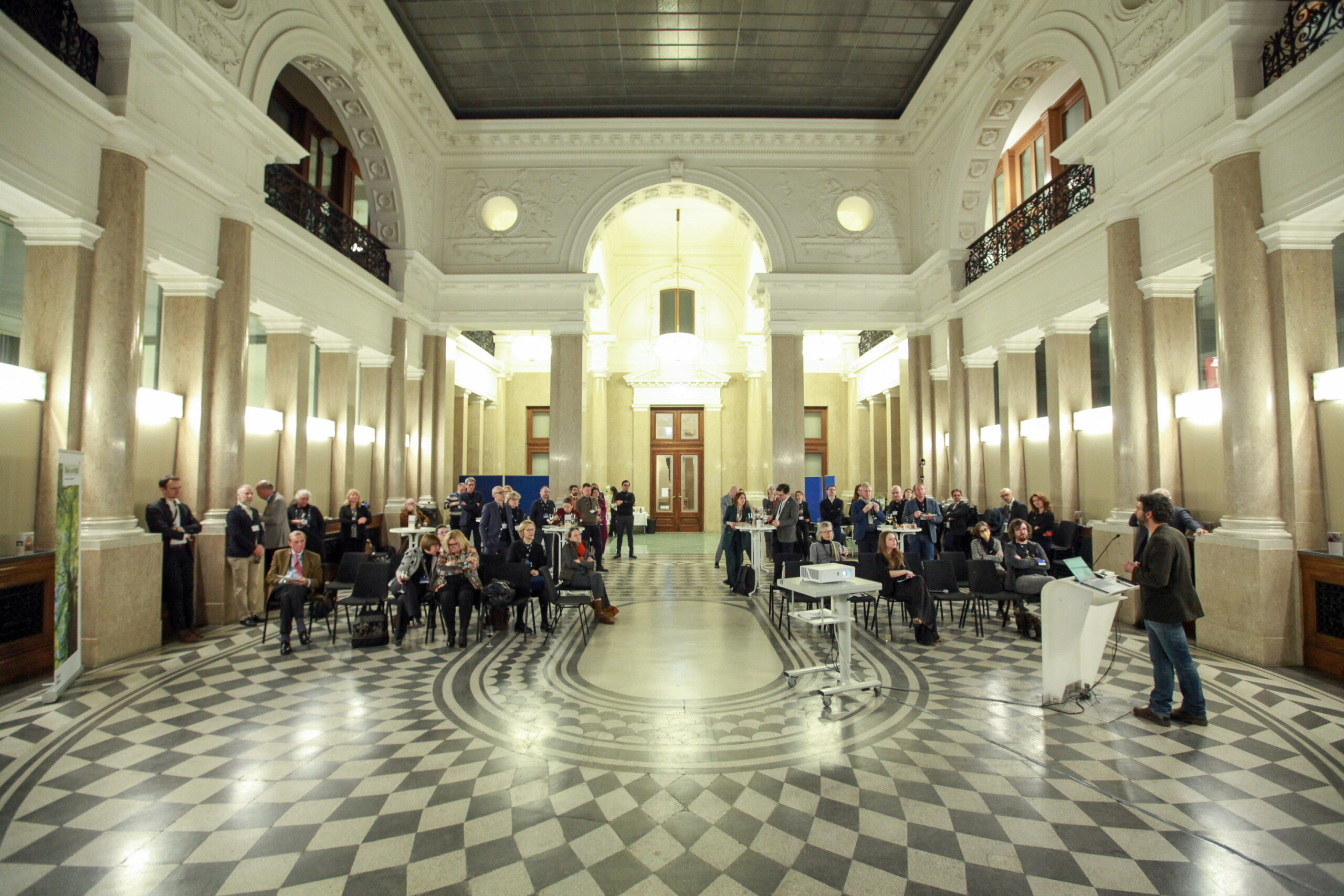
©Florian Spielauer
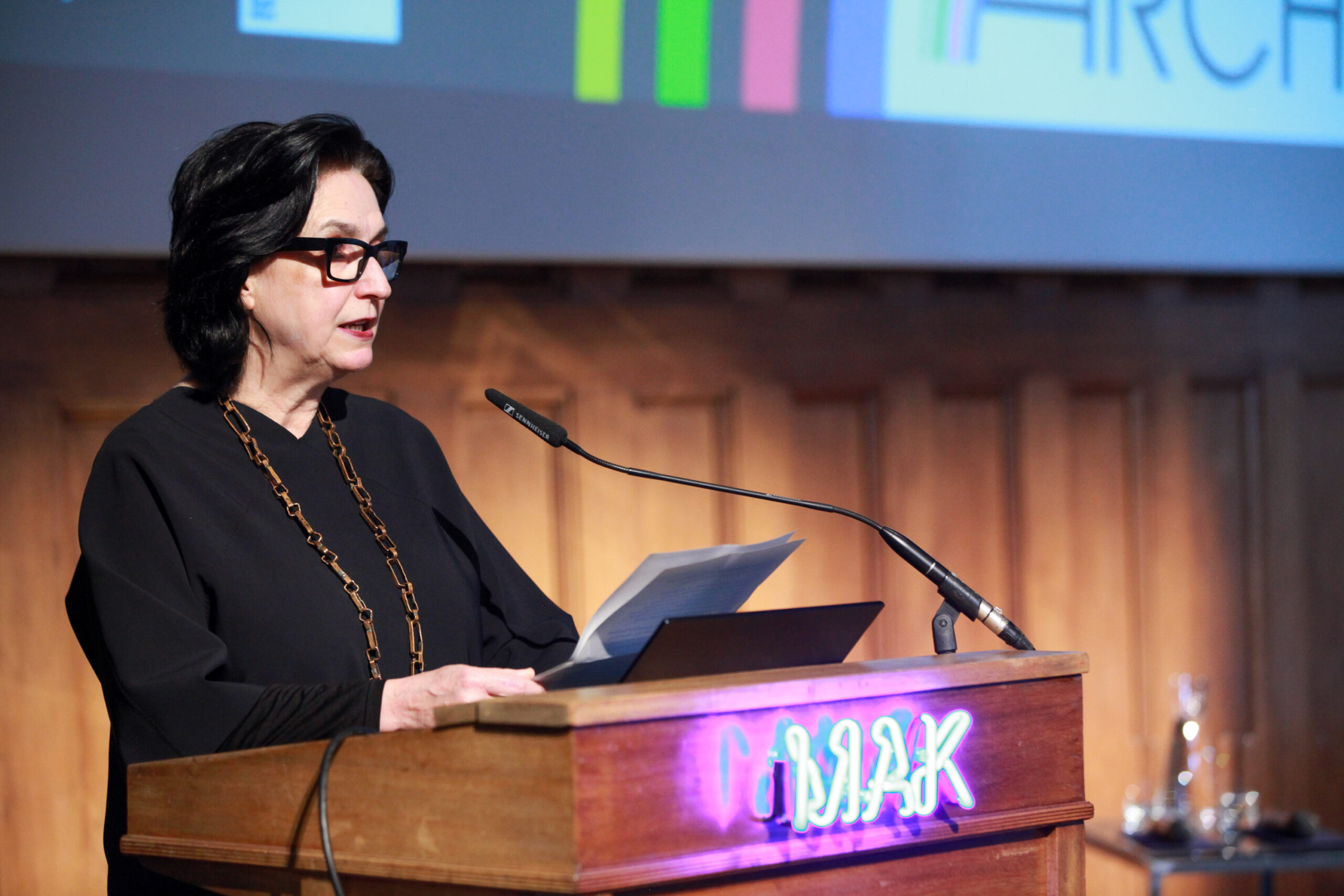
©Florian Spielauer
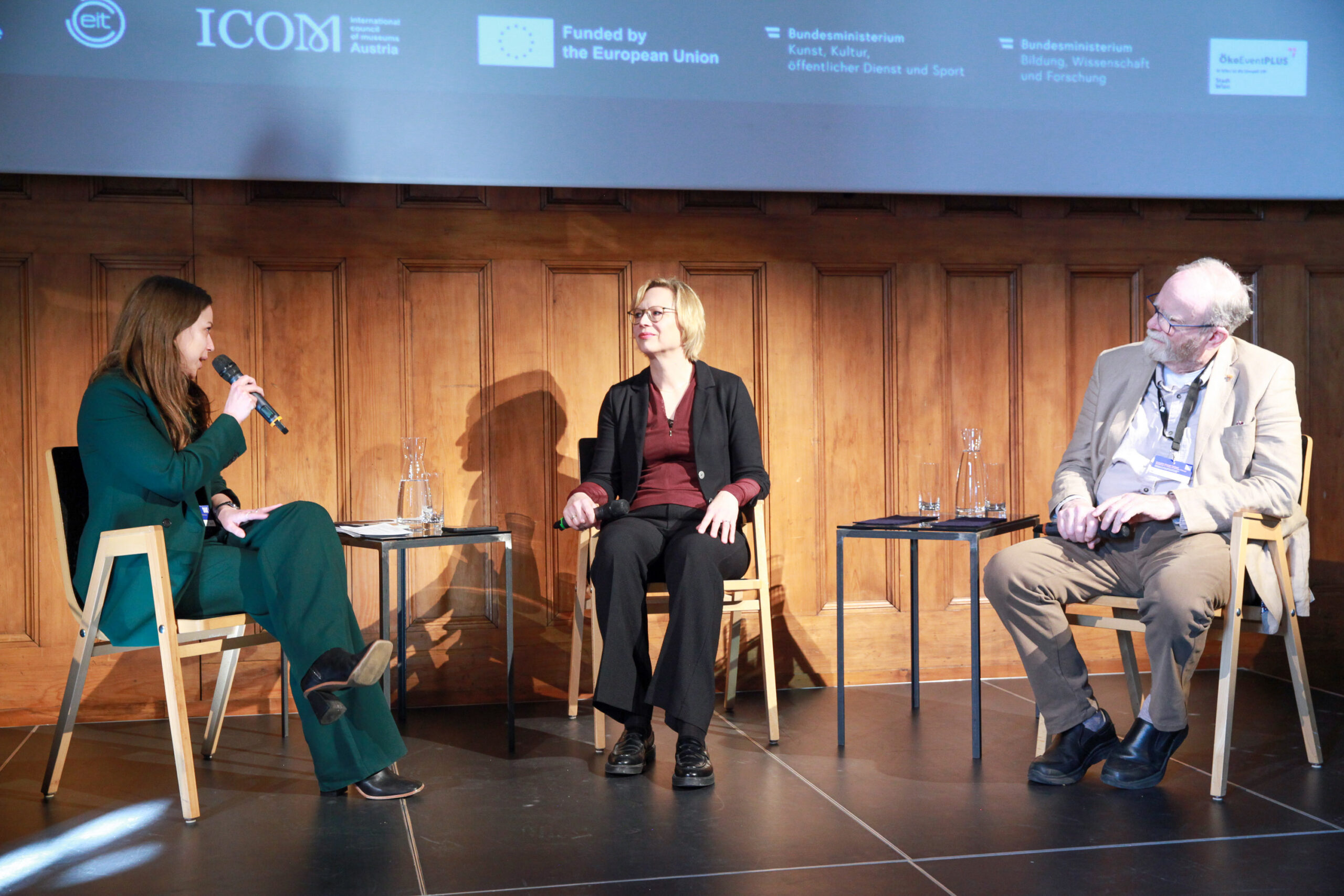
©Florian Spielauer
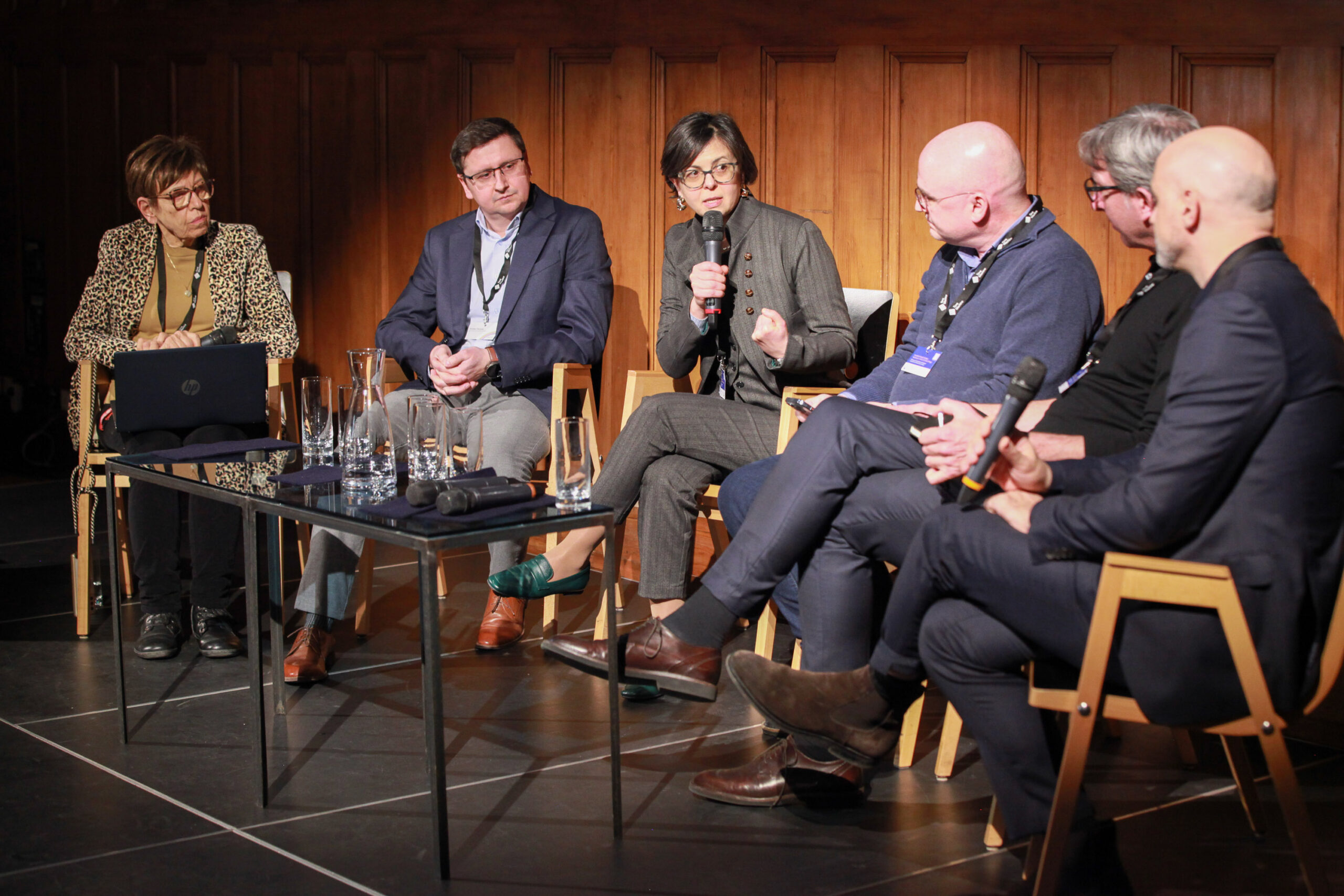
©Florian Spielauer
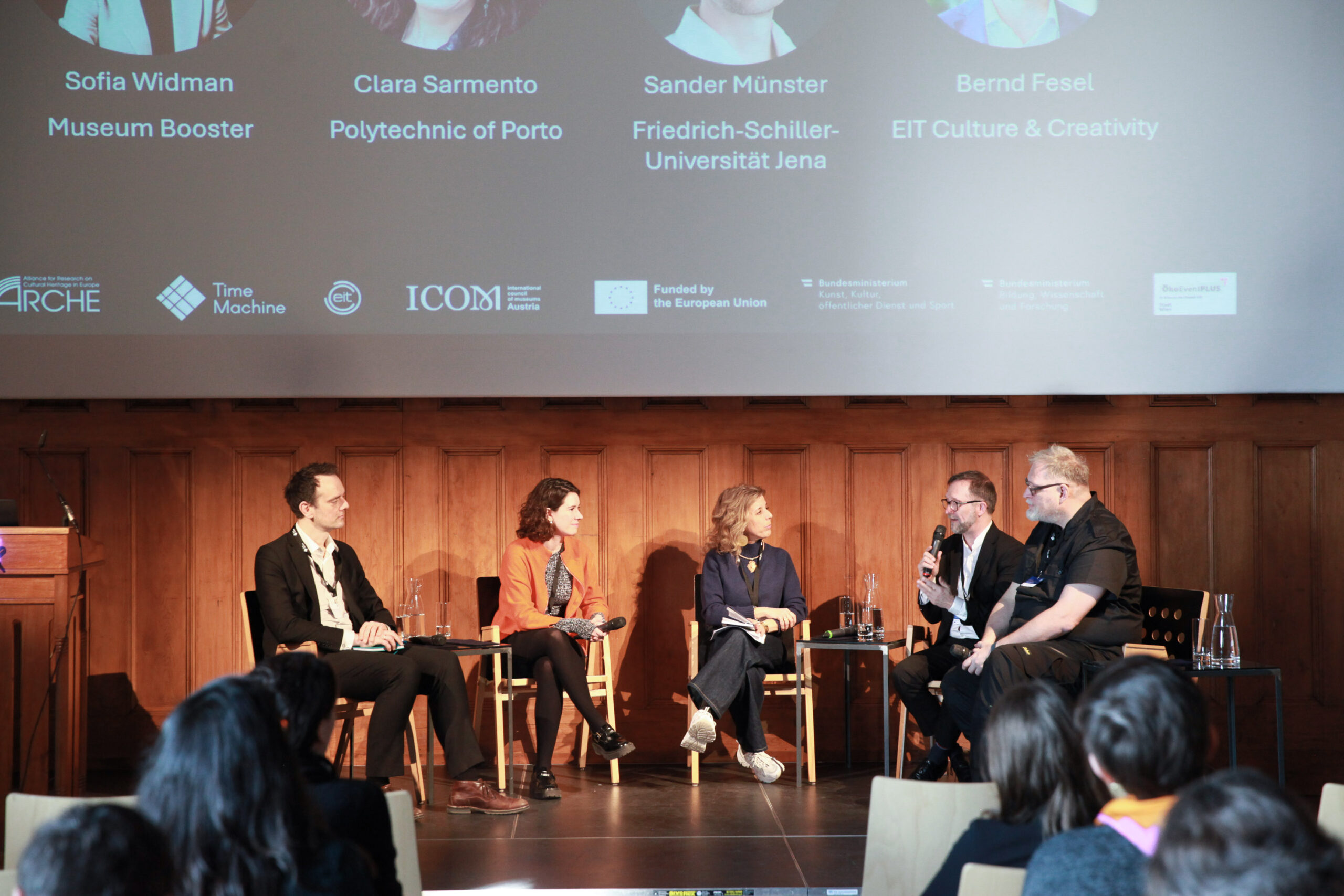
©Florian Spielauer
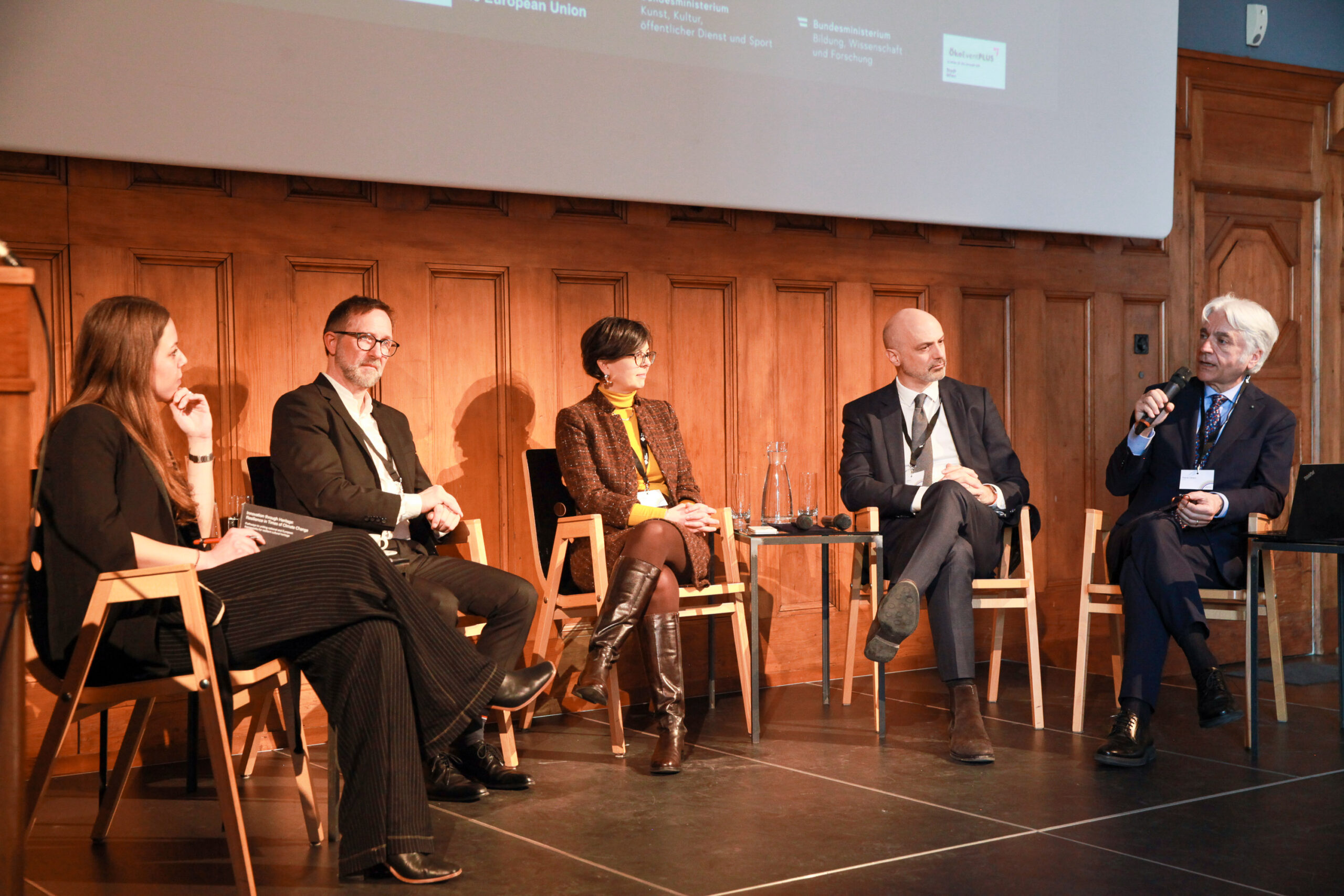
©Florian Spielauer
